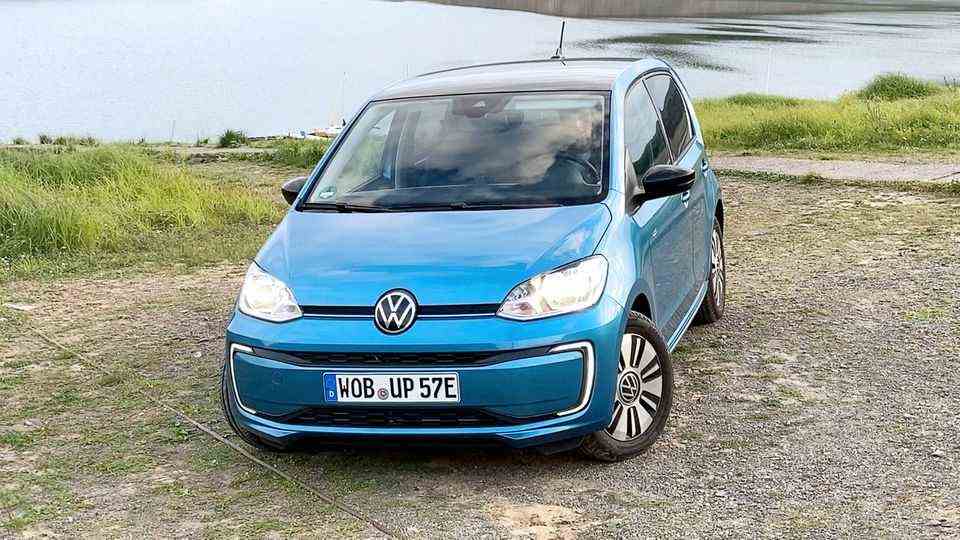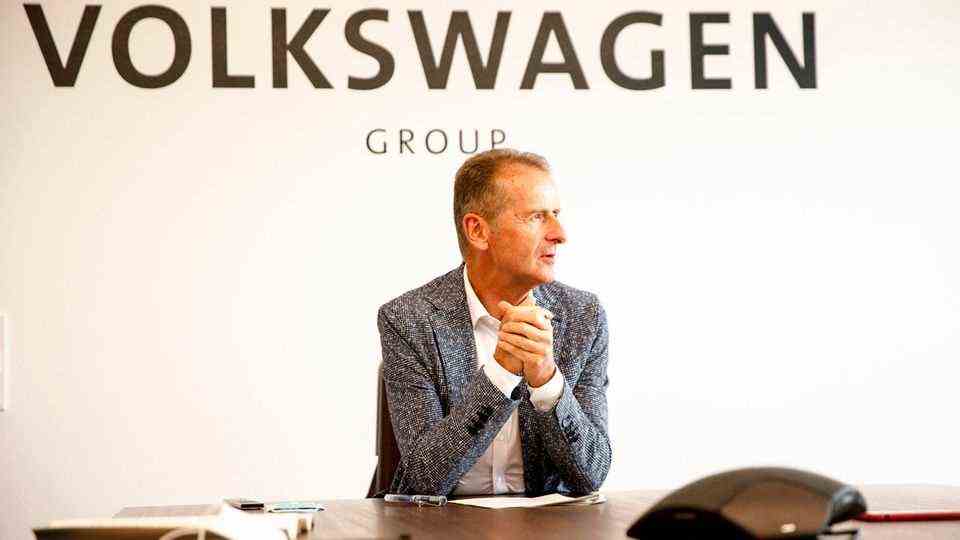Climate change
Withdrawal of combustion engines by 2030: Greenpeace sues Volkswagen
Greenpeace activists spread a huge protest banner over cars that are parked at the VW loading bay. The activists also collected the ignition keys of the cars as part of the campaign.
© Greenpeace / DPA
The environmental protection organization Greenpeace has filed a lawsuit against Volkswagen. The company is making a significant contribution to the climate crisis and should get out of combustion technology by 2030.
Greenpeace has sued the VW Group for sticking to the internal combustion engine. As already threatened, the environmental protection organization has now turned to the Braunschweig Regional Court. There, the two managing directors of Germany, together with an activist, filed a lawsuit due to a lack of climate protection. According to a spokesman on Tuesday morning, VW AG in Wolfsburg had not yet received the pleading – but the company had already rejected the allegations in principle.
Volkswagen is making a significant contribution to the climate crisis
According to the plaintiffs, the considerable CO2 emissions from the vehicles and production facilities of the largest European car manufacturer are a major contributor to the climate crisis. The business model of Volkswagen is not compatible with the goal of limiting the global temperature rise to 1.5 degrees, it said.
In the past few months there had been several protests by Greenpeace against VW. At the IAA auto show in September, the organization confronted CEO Herbert Diess with their criticism, who then said they wanted to stay in touch. According to earlier information, cars from the VW Group were recently responsible for at least around one percent of global carbon dioxide emissions.
Greenpeace calls for an exit from combustion technology by 2030
The legal argumentation of the plaintiffs: The foreseeable damage caused by the additional global warming encroached on inadmissible rights of freedom and property. They are therefore calling on VW to end the sale of climate-damaging gasoline and diesel vehicles by 2030 at the latest. If the lawsuit were successful, a good two billion tons less CO2 would be emitted by 2040, they estimate. The Greenpeace managing directors Martin Kaiser and Roland Hipp, the Fridays for Future activist Clara Mayer and a co-plaintiff also rely on the climate share of the Federal Constitutional Court.
From VW’s point of view, disputes in civil courts against individual companies are not the way to go. The Wolfsburg-based company emphasized that they had clearly committed themselves to the Paris climate agreement. By 2050 at the latest, the group intends to be carbon-neutral on the balance sheet. It is also primarily the task of the legislature to shape climate protection.
VW plans high investments in electric and hybrid models
Greenpeace does not want to accept that. The exit targets of VW are also set too non-binding and too late. At the beginning of September, Deutsche Umwelthilfe (DUH) and Greenpeace had already taken legal action against four German corporations: BMW, Mercedes-Benz and VW as well as the oil and gas group Wintershall Dea were sent cease and desist letters. At the end of October, VW rejected the request to reduce its emissions more quickly. The other three companies were also wrongly attacked.
VW is investing a high double-digit billion sum in electric and hybrid models in the coming years. However, the group shies away from a fixed date for a final farewell to the combustion engine with reference to the internationally different market and demand conditions. The subsidiary Audi announced in the summer that it would end production of gasoline and diesel cars – except in China – by 2033 at the latest. The Ingolstadt-based company is expected to end its development much earlier, and from 2026 new models will only be available on the world market as fully electric battery-powered cars. Several other car companies and entire countries have announced fixed phase-out dates for the internal combustion engine.

“A huge CO2 emitter like Volkswagen has to bow to international climate targets and the ruling from Karlsruhe,” said Greenpeace managing director Kaiser on the sidelines of the world climate conference in Glasgow. “Only with a quick goodbye to the combustion engine can VW make its contribution to limiting the global temperature increase to 1.5 degrees.”
Netherlands: Corporations need to reduce emissions
The Wolfsburg opposed it: “Volkswagen stands for climate protection and rapid decarbonisation of the transport sector, but it cannot cope with this challenge on its own.” The Greenpeace complaint will be examined after it has been served. “Regardless of this, we will press ahead with our transformation at full speed.”
A similar lawsuit was recently successful: a Dutch court ruled in May that not only states but also corporations must reduce their emissions. It condemned Shell to do more climate protection.


